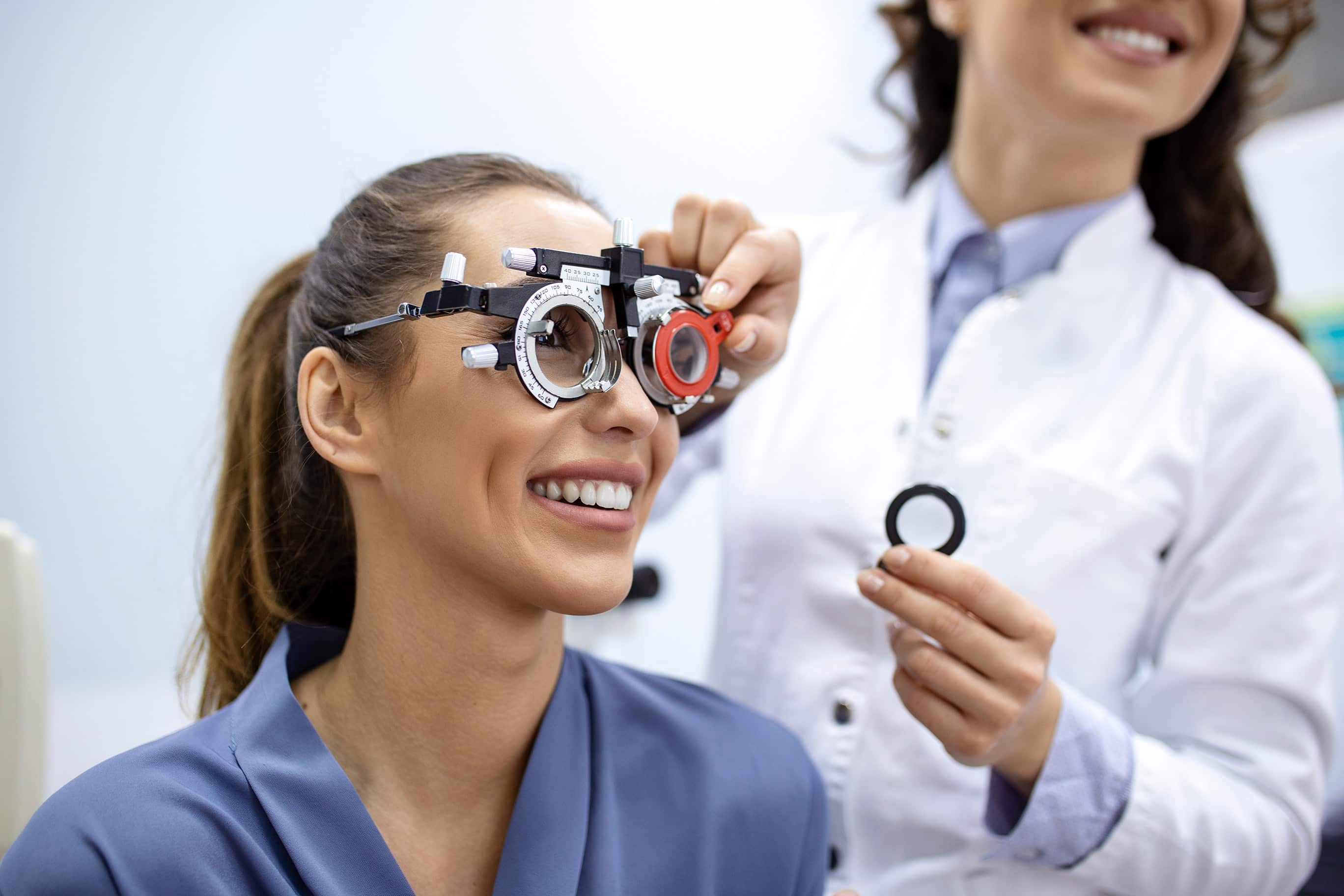What is Astigmatism, And Can It Be Fixed?

At Mountain Brook Eye Care in Mountain Brook, AL, it is our pleasure to help our patients understand astigmatism and its effects. Astigmatism is a type of refractive error, the eye’s inability to focus light correctly. It is a relatively common condition and varies in severity. In this post, we will discuss what causes astigmatism, associated symptoms, and treatment options.
Overview of Astigmatism
Astigmatism is a refractive error that occurs most commonly when the cornea or lens of the eye has an asymmetrical shape. In an eye without refractive error, light focuses at a point on the retina. Astigmatism creates a different optical power in the vertical and horizontal meridians of the eye, preventing light from focusing correctly on the retina. As a result, individuals with astigmatism experience distorted vision, which can affect both near and far objects. This condition is relatively common, with millions of people worldwide experiencing some degree of astigmatism.
Common symptoms of astigmatism include:
- Blurred or distorted vision.
- Glare or starbursts at night
- Difficulty seeing fine details.
- Eye strain and discomfort.
- Headaches.
- Shadowing or mild double vision
Causes of Astigmatism
Cornea and Lens Irregularities: The most common cause of astigmatism is an asymmetrical radial shape of the cornea (the clear front surface of the eye), lens (positioned just behind the pupil within the eye), or a combination of both. Instead of having the ability to focus like a uniform spherical lens, like a round basketball, an eye with astigmatism focuses similarly to a lens shaped like a football. Consequently, light will focus unevenly on the retina.
Genetics and Family History: Genetics can play a role in the development of astigmatism. If your parents or other family members have astigmatism, you may have an increased chance as well.
Eye Injuries or Surgeries: In some cases, astigmatism can develop after eye injuries or surgeries. Scar tissue formation or changes in the eye’s anatomy can lead to irregularities that cause astigmatism.
Connection with Other Eye Conditions: Astigmatism can also be associated with other eye conditions, such as nearsightedness (myopia) or farsightedness (hyperopia). More severe conditions, such as Keratoconus, can cause dramatic irregularities of the corneal shape. These conditions can coexist and compound visual problems.
How to Fix Astigmatism
Conventional Treatment Options: Eyeglasses and Contact Lenses: Corrective lenses are a common and effective way to manage astigmatism. They work by compensating for the irregular shape of the cornea or lens, allowing light to focus properly on the retina.
Refractive Surgery: Procedures like LASIK and PRK can reshape the cornea to correct astigmatism. These surgeries are effective and can provide long-term vision improvement.
Orthokeratology (Ortho-K): This non-surgical approach uses specially designed contact lenses to reshape the cornea overnight, temporarily correcting astigmatism. Ortho-K is not a permanent correction and needs to be used nightly. It can be an option for those seeking an alternative to surgery.
Can Astigmatism Be Prevented or Fixed Naturally?
Since astigmatism is a product of an eye’s abnormal anatomical structure, there is nothing to prevent it from occurring or alleviate it naturally. Individuals with astigmatism can have great eye health but still struggle with poor vision. Fortunately, there are multiple options for correcting astigmatism, such as glasses or contact lenses, as listed above.
Choose Mountain Brook Eye Care for Assistance
If you are experiencing symptoms of astigmatism or have questions about your eye health, we encourage you to contact our eye clinic today. Our experienced team is here to provide immediate attention and guide you on the best course of action for your eye care needs.
Dr. Jeremy Edgerly
Dr. Edgerly has been actively practicing optometry since 2012 in a family practice setting. He is confident in his ability to accurately diagnose, treat and manage conditions of the eye and local structures. He attended the University of Alabama at Birmingham and earned a Bachelor of Science. Upon completing his undergraduate studies, he enrolled in the UAB School of Optometry, where he earned a Doctorate in Optometry. There, he received specialized training in ocular diseases, contact lenses, pediatrics, and refractive and cataract surgery co-management.

